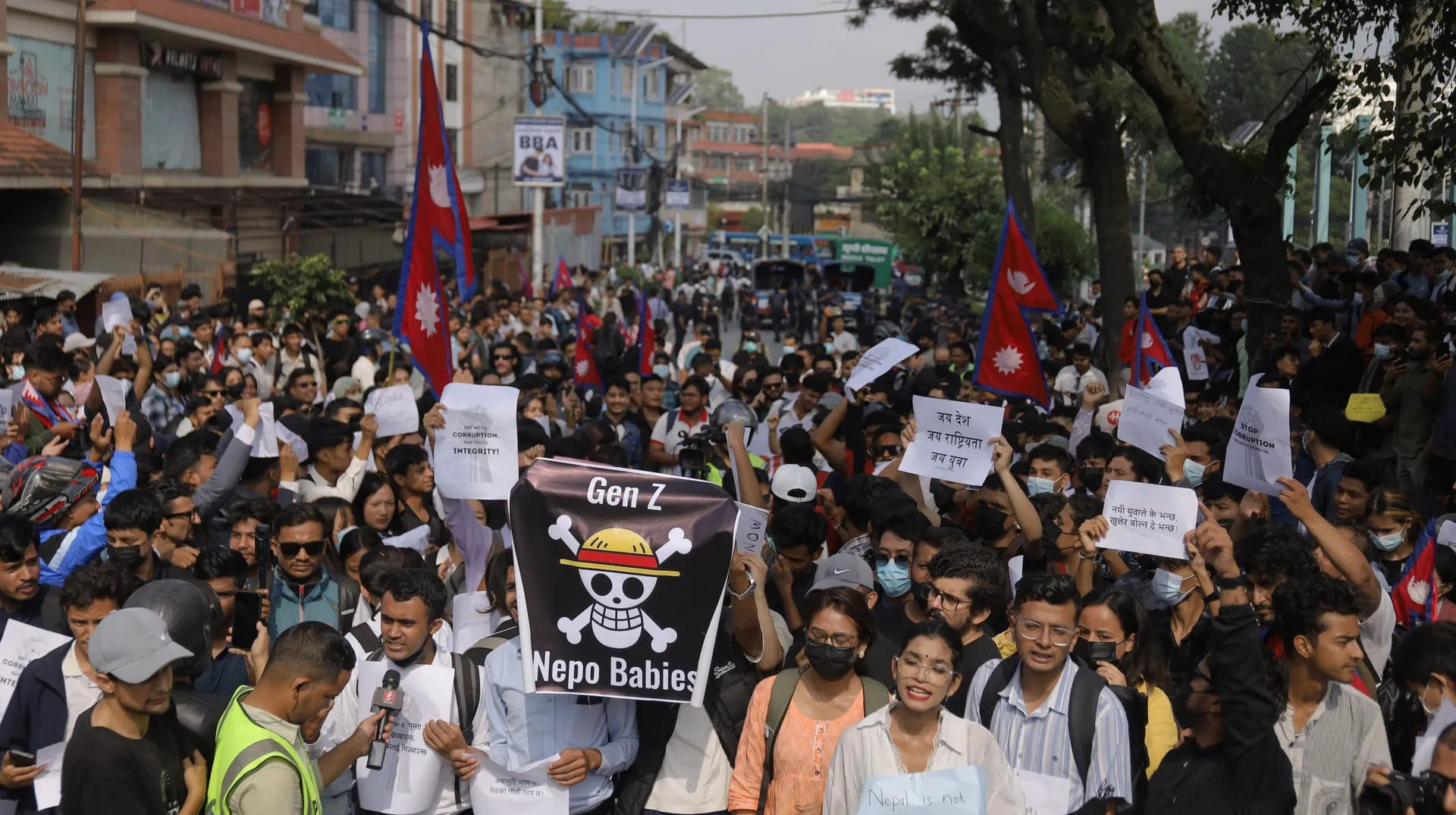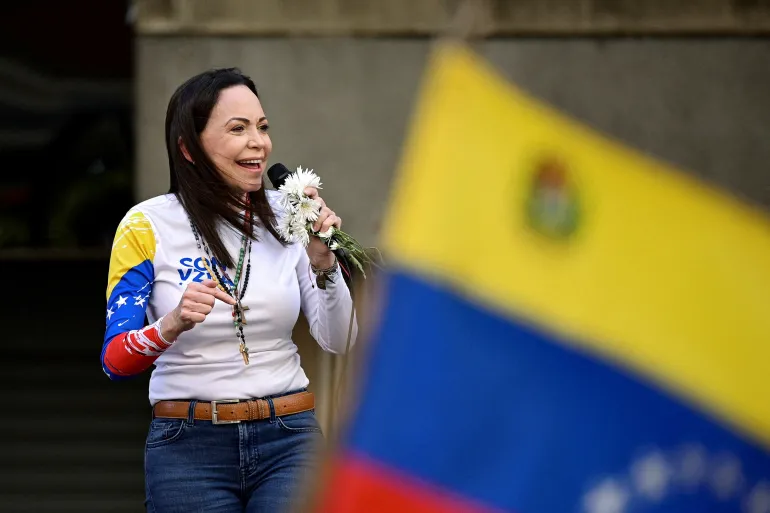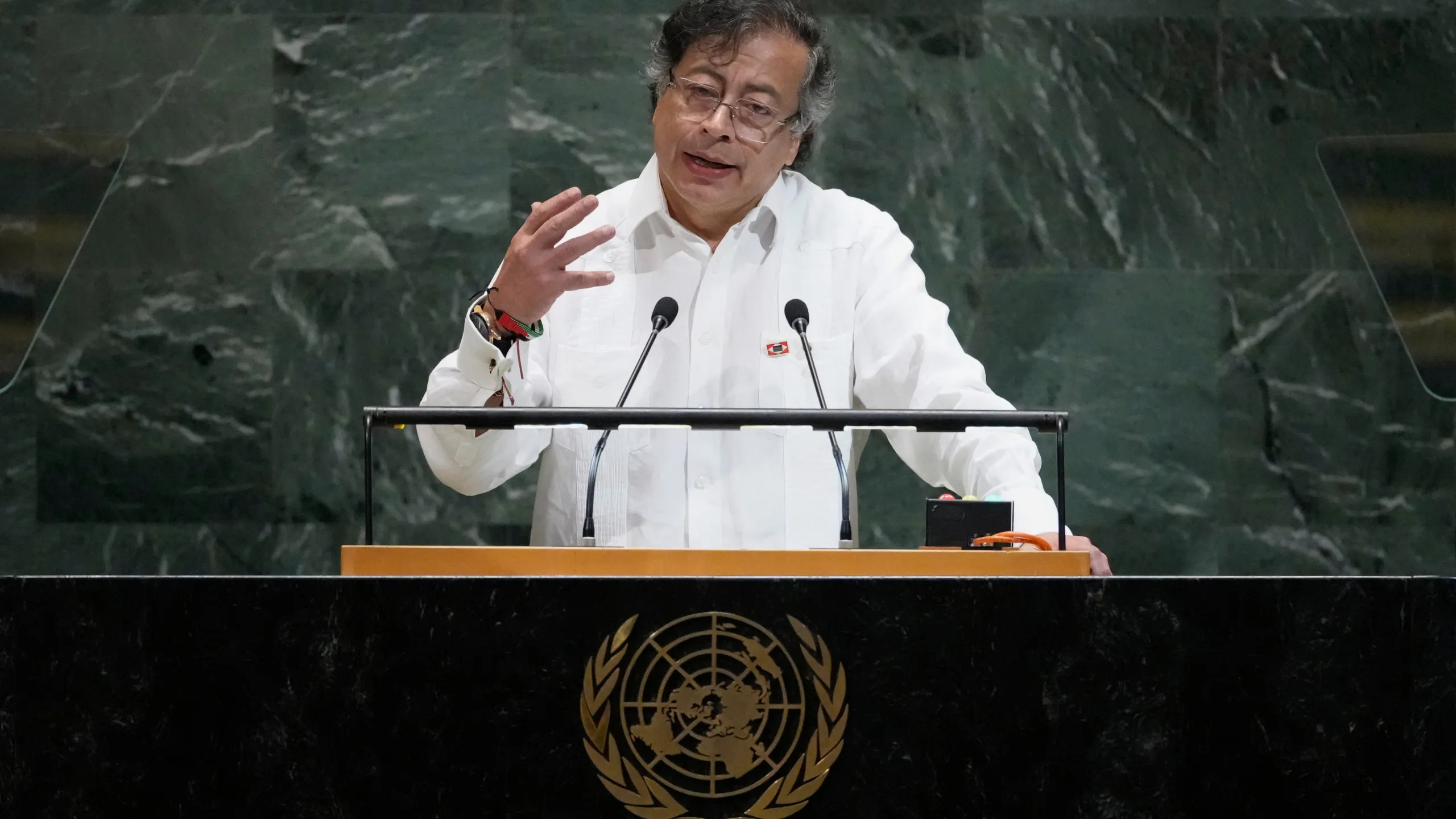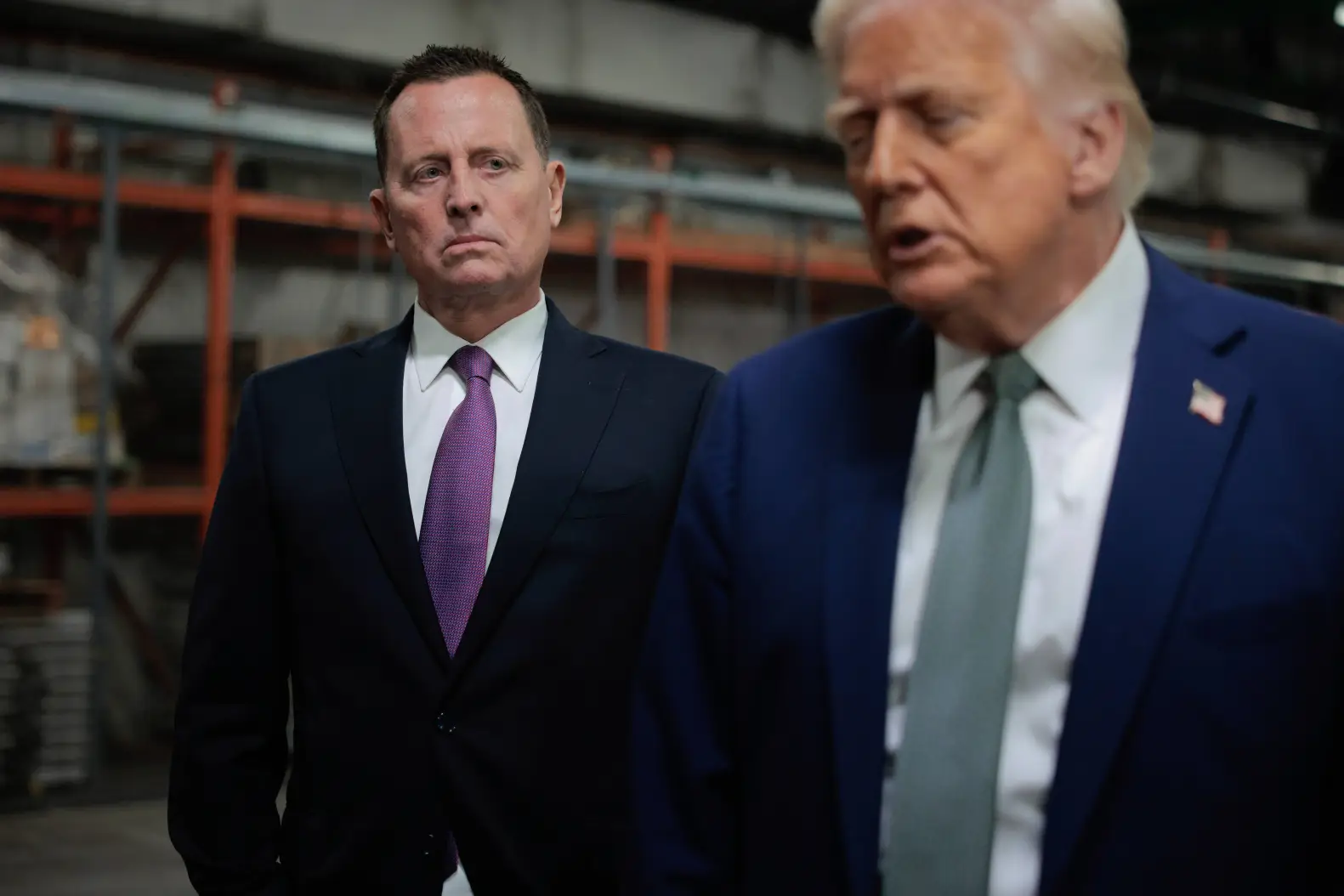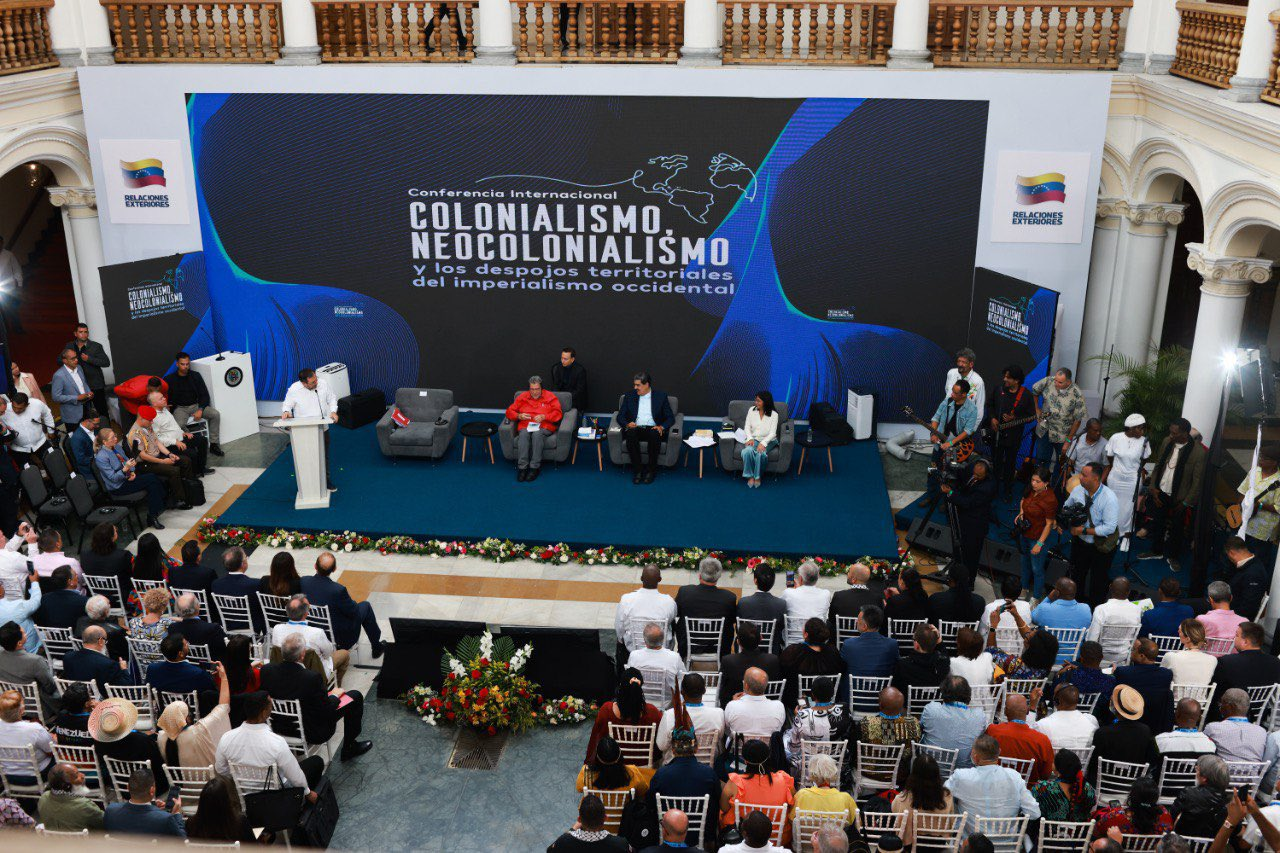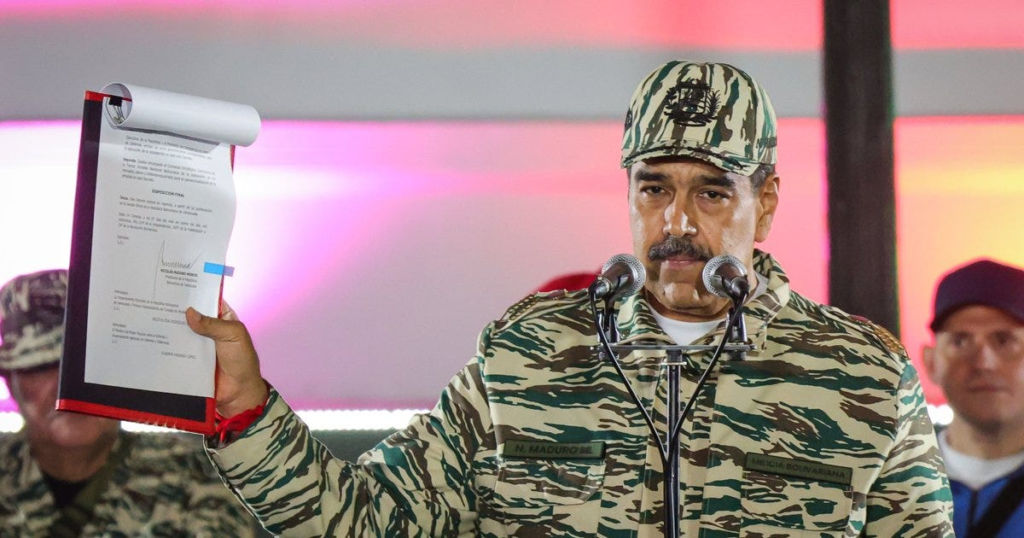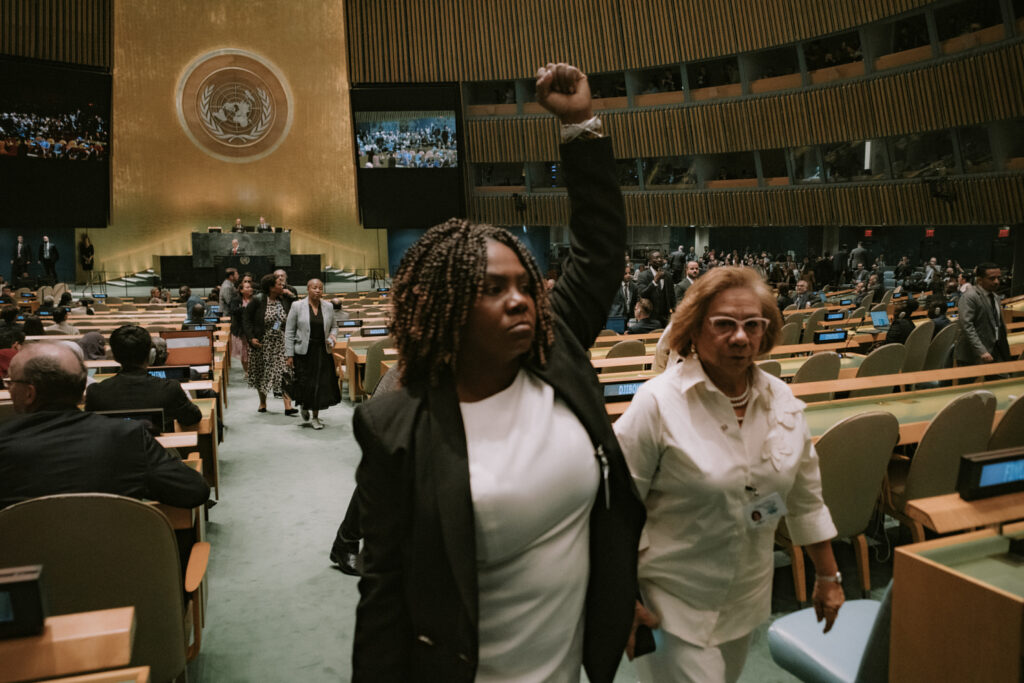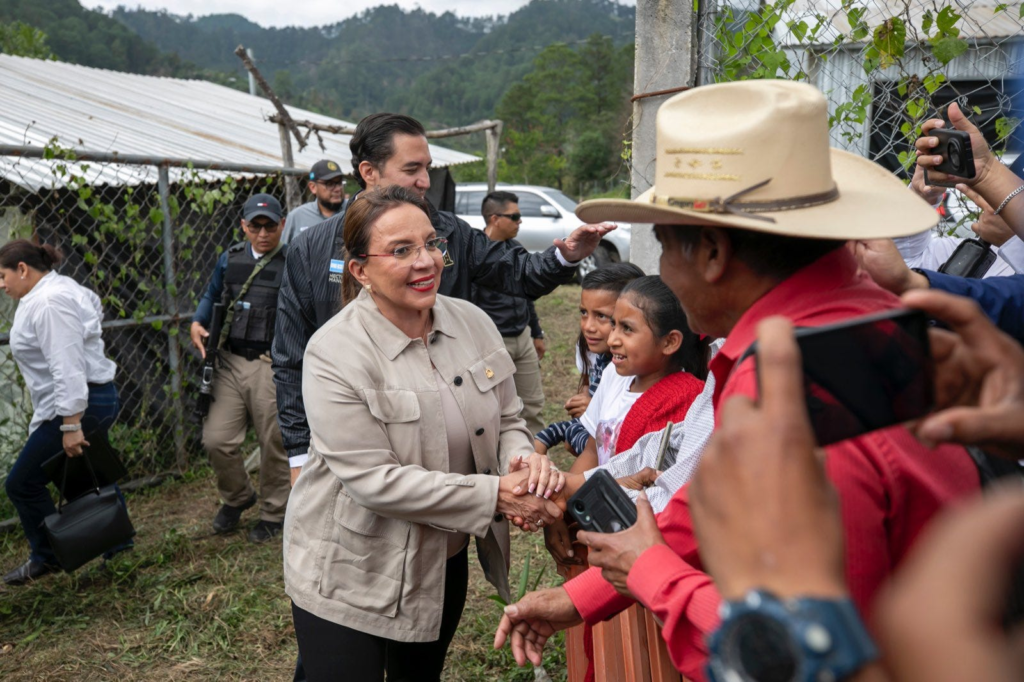For years, resentment and discontent had been simmering among the masses who followed on their cell phone screens the posh, luxury lifestyles of the children of the nation’s elite.
Those less fortunate have lived in a nation for generations that has been marred by the unsustainable socio-economic conditions that have exacerbated the wealth divide in the Himalayan nation of Nepal, until last week, when it all boiled over.
“Nepo-kids” is what the Gen-Z movement called the rich offspring of the nation’s top government officials, who sent away their children to study abroad in the West, lavishing them with expensive jewelry, exotic vehicles, and opulent travel experiences throughout the world.
Nepal is not a small nation, but it isn’t a large one either, with almost 30 million residents, word travels fast, and with such a wealth divide as this, where 10% of the nation’s population controls 26 times the wealth of the poorest 40%, according to the Nepali Economic Forum, resentment will build, culminating in a violent fury when the oligarchs can no longer serve the needs of the common people.
What made matters worse was the Maoist government’s recent ban on social media platforms after citizens began accusing the administration of Prime Minister Sharma Oli of public corruption, nepotism, and graft. However, the ban was sold to citizens as a way of tackling the spread of “fake news, hate speech, and online fraud.”
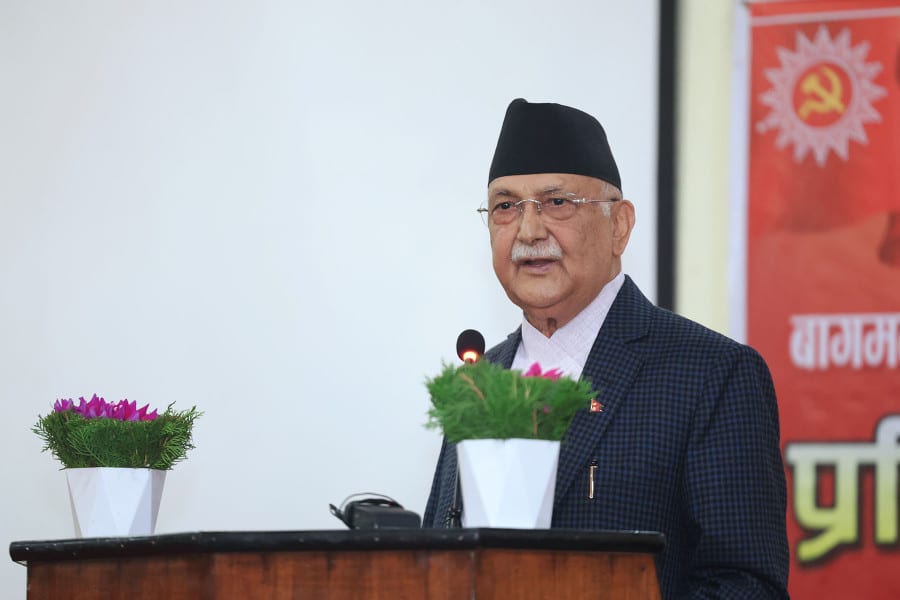
On the 8th of September, violence erupted in the capital of Kathmandu, and destruction ensued for several days, where burning, looting, and the toppling of government buildings and the residences of top government officials spread with a fury.
Protesters even burned the federal parliament building and set it alight. On Tuesday the 9th, videos emerged showing anti-government protesters storming the residence of ex-Prime Minister Sher Bhadur Deuba and his wife, Foreign Minister Arzu Rana Deube.
That same day, footage also showed military helicopters swooping down onto the airport in the nation’s capital, picking up leaders and top officials who were forced to evacuate and escape the advancing crowds.
Prime Minister Sharma Oli, a Communist Party affiliate, who moved in and out of the nation’s prime minister’s seat over the last two decades, eventually resigned from office after rioters burned down the prime minister’s residence in Baluwatar, and the historic Singha Durbar, which houses various government ministries.
Oli was known for moving Nepal away from the nation’s historic ties with its neighbors in India, instead aligning the Nepali government with growing Chinese influence, signing several trade and transit treaties with the Chinese government in 2016.
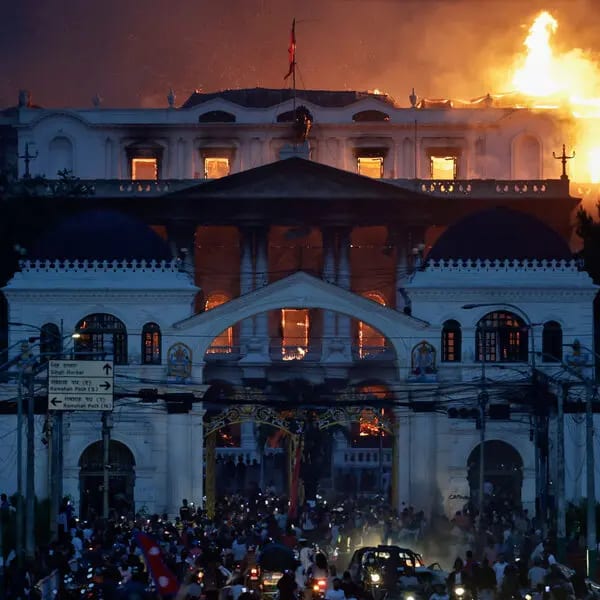
Later the same day on the 9th, after the prime minister’s resignation, Chief of the Army Staff, General Ashok Raj Sigdel, issued a statement following the days of unrest that the Nepali military intended to intervene in the instability and implement a curfew in an effort to stem the growing violence.
In an ominous scene, a portrait behind the sitting army general was of Prithvi Narayan Shah, the last king of the Gorkha Kingdom and the first monarch of the unified Kingdom of Nepal, who is credited with unifying modern Nepal. The image is perhaps indicative of a desire among the military brass to restore the nation’s monarchical roots, which had been uprooted by the communist government and the Maoist regime that brought the likes of PM Sharma Oli to bear.
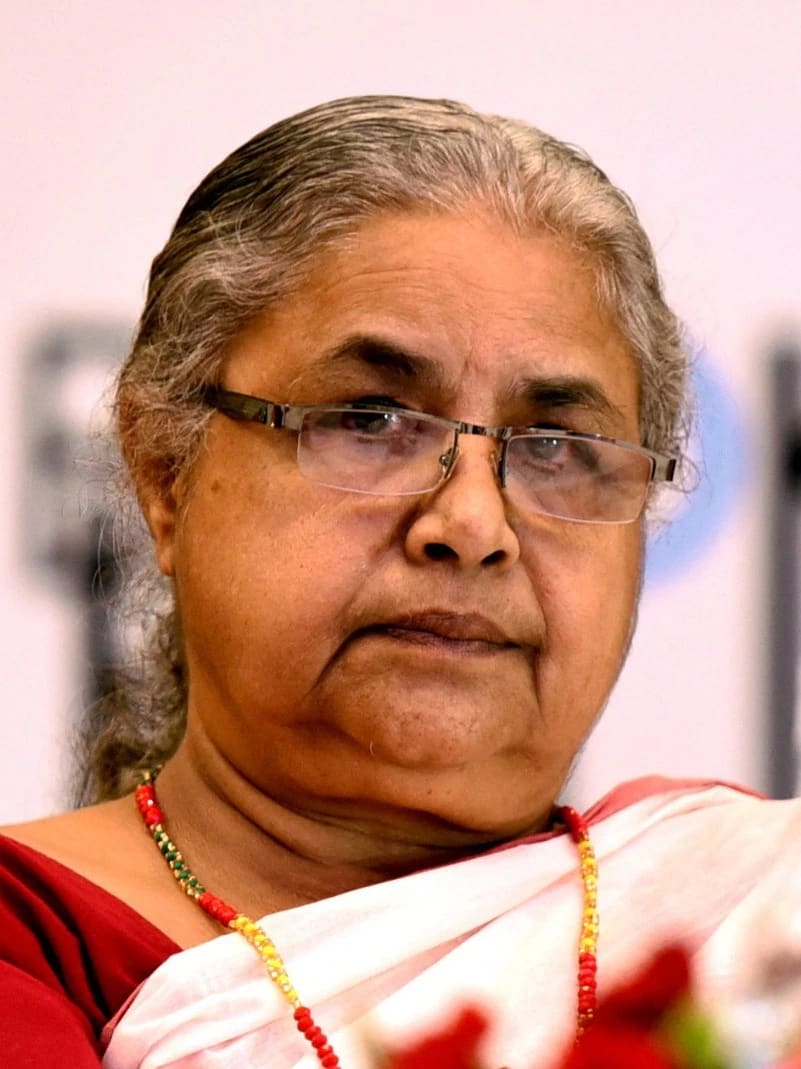
On the 14th of Sunday, Nepal announced the newly-appointed interim prime minister in former Supreme Court Chief Justice Sushila Karki, a compromise that satisfied the angry masses of the Gen-Z movement because of Karki’s clean reputation and uncorrupted image.
Karki has vowed to step down from the prime minister’s seat after six months when a new government will emerge following the elections on the 5th of March in 2026.
Karki has also promised to compensate the families of those killed in the riots, approximately 72, who are mostly protesters after clashes with security forces. The AP reported that Karki “told top officials gathered at her temporary office that each family of slain protesters will receive monetary compensation of 1 million rupees (about $ 11,330)”.
The new prime minister and Nepal’s first female leader will have a challenging road to restoring order in the tumultuous nation, where the wealth divide will not be easy to remedy, and Karki’s task of bolstering faith in a constitutional order that has been weakened following decades of corruption and abuse. These issues will be especially difficult given the nation’s relatively new democracy, and with a military breathing down the neck of the interim government – a military that is eager to restore its traditional influence over the country, in a region where nations have deep origins in military governance.

